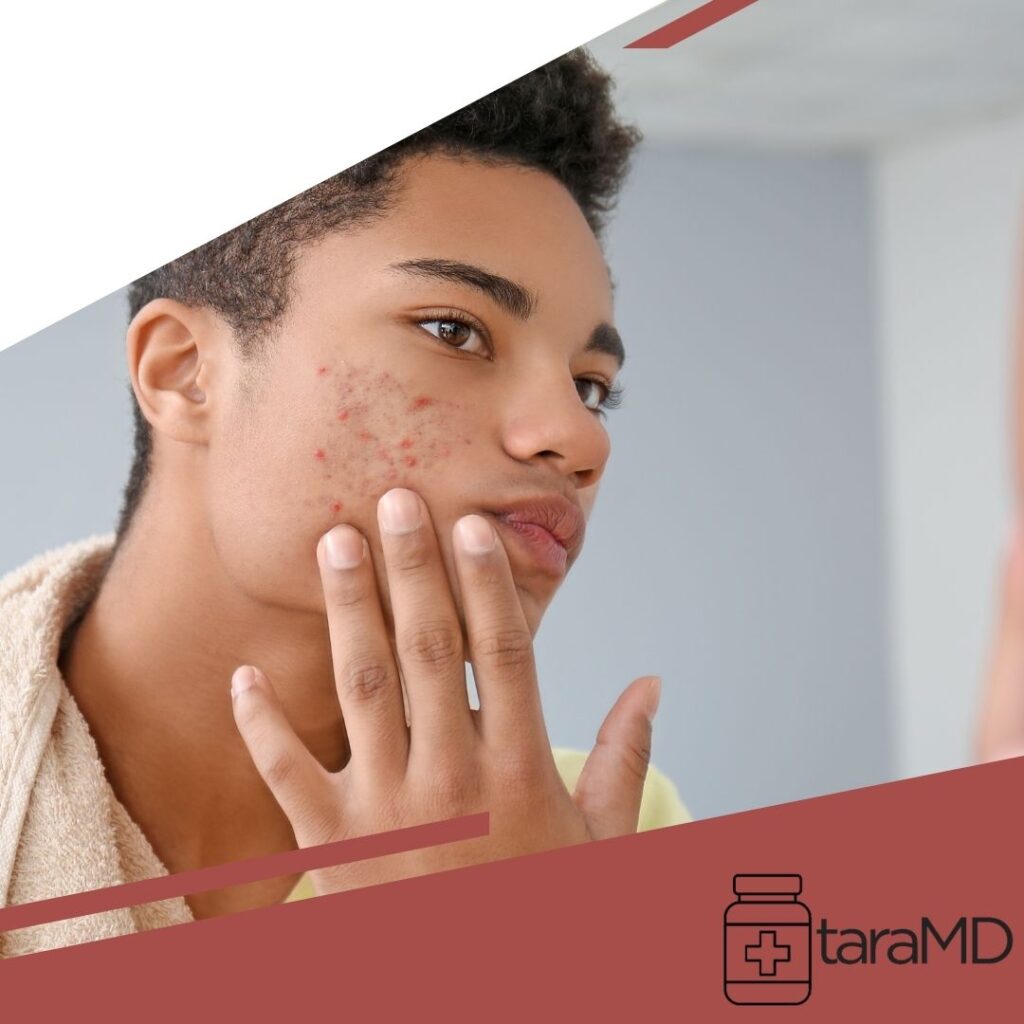When most people think of acne, they picture teenagers struggling with breakouts during puberty. However, acne isn’t just a teenage problem—it can persist well into adulthood, or even develop for the first time in your 30s, 40s, or beyond. In fact, adult acne is more common than many realize, and its causes can differ significantly from those experienced during adolescence. In this article, we’ll explore the reasons why adult acne occurs, how it differs from teenage acne, and the best ways to treat it.
1. Understanding Adult Acne: The Causes
Acne during adulthood can be triggered by a variety of factors. Unlike teen acne, which is often hormone-driven, adult acne is frequently caused by a combination of hormonal fluctuations, lifestyle factors, and stress. Here are some of the key contributors:
- Hormonal Fluctuations: For many adults, hormonal changes are a significant cause of acne. Women, in particular, may experience breakouts during their menstrual cycle, pregnancy, or menopause due to fluctuating levels of estrogen and progesterone. Hormonal imbalances, such as those associated with polycystic ovary syndrome (PCOS), can also contribute to adult acne.
- Stress: Chronic stress can elevate cortisol levels in the body, which in turn can lead to an increase in oil production and breakouts. This is often referred to as “stress acne,” and it tends to appear in areas like the forehead, chin, and jawline.
- Diet: Certain foods, particularly those with a high glycemic index (such as sugary snacks and processed foods), may trigger acne flare-ups in adults. Dairy products, especially milk, have also been linked to acne in some individuals.
- Skincare and Cosmetics: Many adults use skincare products that can inadvertently contribute to acne. Thick moisturizers, heavy makeup, and products that clog pores may lead to acne, especially in those with oily or sensitive skin.
- Medication Side Effects: Some medications, like birth control pills, corticosteroids, and certain antidepressants, can trigger acne as a side effect.
2. How Adult Acne Differs from Teen Acne
While both teen and adult acne share common traits—such as clogged pores and inflammation—there are key differences in how they manifest:
- Location: Adult acne is more likely to appear along the lower part of the face, particularly around the chin, jawline, and neck. This is often referred to as hormonal acne, as it is directly influenced by fluctuations in hormones. In contrast, teen acne is more likely to be found on the forehead and upper face.
- Severity: Teen acne is often more severe, with larger cysts and pustules, whereas adult acne tends to be less aggressive but can still cause significant distress, particularly when it becomes chronic.
- Triggers: While teenage acne is usually triggered by puberty-related hormonal changes, adult acne may be exacerbated by stress, diet, and environmental factors, such as pollution or changes in skincare routines.
3. Treating Adult Acne
Treating adult acne involves a combination of good skincare habits and, when necessary, professional treatments. Here are some effective strategies:
- Topical Treatments: Over-the-counter products containing benzoyl peroxide or salicylic acid can help manage mild breakouts by reducing bacteria and unclogging pores. For more persistent acne, topical retinoids like adapalene can promote cell turnover and reduce inflammation.
- Prescription Medications: If over-the-counter treatments are ineffective, dermatologists may prescribe stronger treatments, such as oral antibiotics (like doxycycline or minocycline), hormonal therapy (such as birth control pills or spironolactone), or topical antibiotics.
- Regular Skincare Routine: Maintaining a gentle skincare routine with a mild cleanser and oil-free moisturizer can help prevent breakouts. Avoid harsh scrubs, as they can irritate the skin and make acne worse.
- Stress Management: Reducing stress through practices like exercise, meditation, or hobbies can help lower cortisol levels and minimize acne flare-ups.
- Dietary Adjustments: Consider reducing high-glycemic foods and dairy products if you notice a correlation with your acne. A balanced diet rich in antioxidants, healthy fats, and hydration can support overall skin health.
Adult Acne Is Manageable
Acne is not just a teen problem—it can affect adults as well, and its causes can vary widely. Whether hormonal changes, stress, or skincare habits are to blame, understanding the root cause of your acne is the first step toward effective treatment. If over-the-counter treatments are not sufficient, seeking advice from a dermatologist can provide you with personalized solutions, such as prescription medications or professional treatments. Remember, adult acne is common, and with the right approach, it is treatable. Don’t let acne affect your confidence—take proactive steps today to achieve clearer, healthier skin.
Read more:

